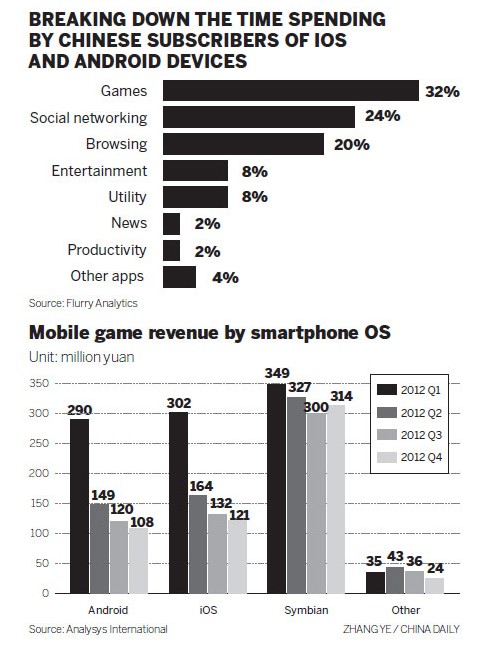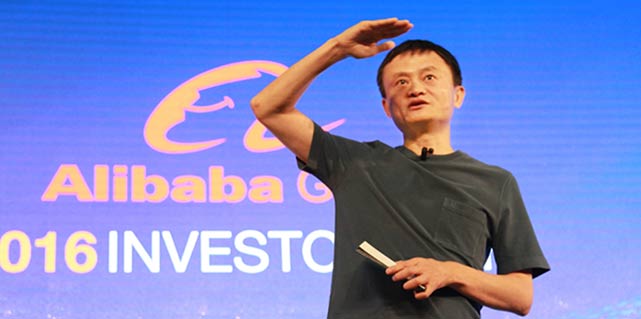A golden age for gaming on the go
By Gao Yuan (China Daily) Updated: 2013-05-06 01:55Stiff competition
Both mobile gaming developers and app stores are, however, set to witness increasingly fierce competition because of the huge number of companies entering the sector, analysts said.
Attracted by the exploding market scale and optimistic earnings expectations, game developers are also eyeing the mobile sector in a bid to lift profit margins.
Perfect World Co, a Nasdaq-listed Chinese online game developer, said it will be "actively developing" mobile games as the sector is showing a strong growth momentum.
"Perfect World will release more mobile and browser games later this year to expand its presence. Although the company's major products are PC games, it will closely watch the mobile sector because of its promising prospects," said Xiao Hong, co-CEO of the company.
With more PC game developers entering the fray, the scramble for market share has become intense, said analysts.
If a game cannot generate enough downloads in less than a month, it will find itself overshadowed by new releases and hence will be unable to garner attention in the future, they said.
Moreover, analysts also warned that China's mobile gaming market might not be as healthy as anticipated. The market is still highly unstable and a further integration could be on the anvil.
The quality of the games in the market also varies a lot with a huge number of poorly developed games flooding the market, according to Analysy International. Poor Internet accessibility will also hinder the further development of the sector, it said.
"The mobile Internet connection fee is high while the speeds are still slow. Users are forced to consume games in the WiFi environment, which may not help in getting the full features of mobile games," the research firm said.
The nation's big three telecom carriers started to install third-generation networks in 2009. The networks now cover more than 200 million users.
With the rapid expansion of three-generation networks and WiFi coverage, the mobile gaming sector will enjoy a more smooth Internet connection in the future, Analysys International said.
In addition, with more Chinese people now using advanced mobile devices such as smartphones and tablets, developers will have a strong market to cater to. Research from Analysys International estimated the smartphone penetration rate could reach 55 percent by the end of 2013.
The other important chain in the sector is the app store because they are more linked to the developers, players and advertisers, analysts said.
Tencent Holdings Ltd, a top Internet firm in China, also runs the country's biggest Android-based gaming store.
Tencent took more than 18 percent of the revenue by operating games running on Android phones. The Shenzhen-based company was remotely followed by China Mobile, which took about 8.6 percent of the revenue. Game.189.cn, an online game store run by China Telecom Corp, was ranked third, taking a little more than 8 percent of the revenue, said Analysys International.
Smaller app stores will find it difficult to generate profit because China's top 10 app stores account for more than 80 percent of the revenue, according to Yu from App Annie. Yu, however, did not disclose the annual revenue for China's app stores.
More than 90 percent of the revenue generated by professional gaming distribution platforms came from selling apps to China's smartphone users, said Analysys International.
According to the Ministry of Culture, the online gaming market is expected to surpass 100 billion yuan in 2015. In 2012, the market was more than 60 billion yuan, up 28.3 percent year-on-year.

- Chinese firm BYD opens electric bus factory in Hungary
- Cottage Inn Pizza looks to win slice of market
- Plan helps drive Great Wall Motor
- US shale methanol soon en route to China
- Xiaozhu, Airbnb in collaboration talks
- Cobots to change face of factory floors
- No Suzhou tombs for non-locals
- Xiaomi doubles smartphone bet on India


















